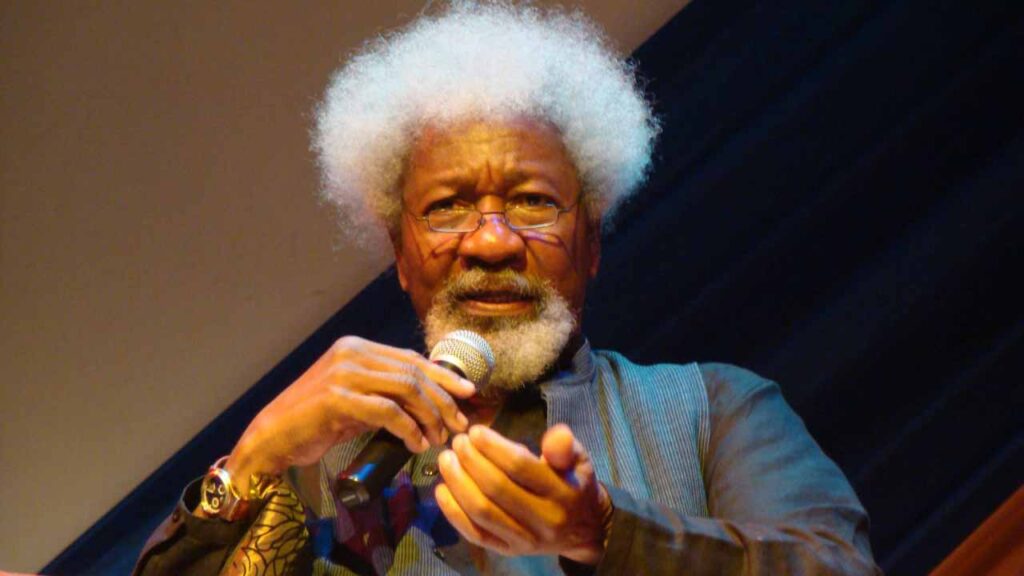
It was Charles-Louis de Secondat, a French Judge and one the principals of the separation of powers theory that said, “there is no greater tyranny than that which is perpetrated under the shield of the law and in the name of justice.”
The play titled, Jungle Justice, satirically brings this avowal to life. It highlights how the wealthy and highly connected people in the society do not only influence court rulings, but also determine what the law says.
Written by Femi Branch, Nevana Productions recently presented it to the public at the Terra Kulture, Lagos. Directed by Austine Onuoha, the play opens with a court session, where the Judge (Jare Adebayo) is autarch and directs court affairs with an iron-fist. Although, he has a soft spot for beautiful women; he, however, coerces everyone in the court to submission with his cane, gun, talisman and amulets.
Before him is a case of murder. An area boy, Ijimere Ika (Uche Enechukwu), is accused of killing his friend, Kasali at a brothel, and Defence Counsel is trying her best to turn the tide of murder case, while Prosecuting Counsel is tightening the noose of justice around Ijimere’s neck.
Witnesses are called to testify. First is Mallam Sadiq (Daniel Omogunloye), who has neither forgotten nor forgiven Ijimere for raping his sister and causing chaos at Hausa Quarters. So, he wishes Ijimere to go to jail and if possible perish there. He does not mind to achieve this through perjury before the tyrant Judge.
Ijimere’s wife, Fadeke (Esther), is the next witness Prosecuting Counsel calls to the stand. She spills the beans on her husband. First, she is not properly married to him; she just moved in with him after he impregnated her. She sells oranges in the neighbourhood and Ijimere has a way of buying all the oranges from her, while he keeps her in his room. But she is not a faithful wife or girlfriend, as Ijimere’s friends sleep with her. Kasali was at the act with her when Ijimere killed him in a fit of anger.
The judge is captivated by her allure, and picks interest in her at once. To him, it is love at first sight. Fadeke exudes beauty he cannot keep his eyes and hands off her even in the court. She becomes a piece of evidence that has to be examined. This is not the first time he is tempering with evidence anyway! He had earlier eaten the suya exhibit Sadiq presented against the Defence Counsel’s objections.
IN fact, right there in his court, the Judge shows that he can turn his courtroom into anything he likes including a dance hall, a massage salon, a classroom with the lawyers as school pupils as he can cane at will. He colludes with the court Policeman (Zion Olorunniyi) whom he turns into his emergency Court Clerk each time the latter absents himself from work to achieve his mission.
When Ijimere protests the judge’s acting up romantically with his wife in court, he orders him to be tied up and gagged or risked being shot! Baby Lawyer (Bunmi Awolowo) has to ensure Ijimere chooses being tied and gagged.
But the judge soon finds out he is emotionally investing in the wrong woman — a nymphet for any man’s picking. He loses interest in her. When Ijimere manages to remove the gag in his mouth, he threatens to kill the Judge the ways he killed Kasali for sleeping with his wife.
The judge reacts to Ijimere’s threat by dumping his robe and donning on his amulet coat; Defence Counsel and Prosecuting Counsel run out of court for dear life. This is when Judge decides to give his verdict; Ijimere has convicted himself over Kasali’s murder when he owns up to the act because Kasali slept with his wife.
First, the judge sentences him to life jail term. But Ijimere smartly observes that the Judge likes securing women. He offers him a damsel. This sways him to cut down his term to a few years; when Ijimere offers to bring him a beautiful woman in 30 minutes, he is completely absolved of the murder charge and sets free for being of good behaviour.
With main and minor themes that cut across highhandedness, docility, amorality, corruption, among others, the playwright engages parody to highlight the rot in the Nigerian legal system. The play tells how evidences are destroyed in the court and the pendulum of justice swings to man that has the wherewithal to pay for it.
The play pictures a society where the judicial authorities, be he a lawyer or police officer or persons in position of authority, use their powers to manipulate justice to their own favour, thereby dashing the hope of the ordinary citizens who depend on them to mete out justice for the wrong done to them.
The cast showcased a high level of artistry in line delivery, mien and vocals. However, the background music should have reflected a more radical music such as one of Fela Anikulapo’s music that talks about societal rots.













